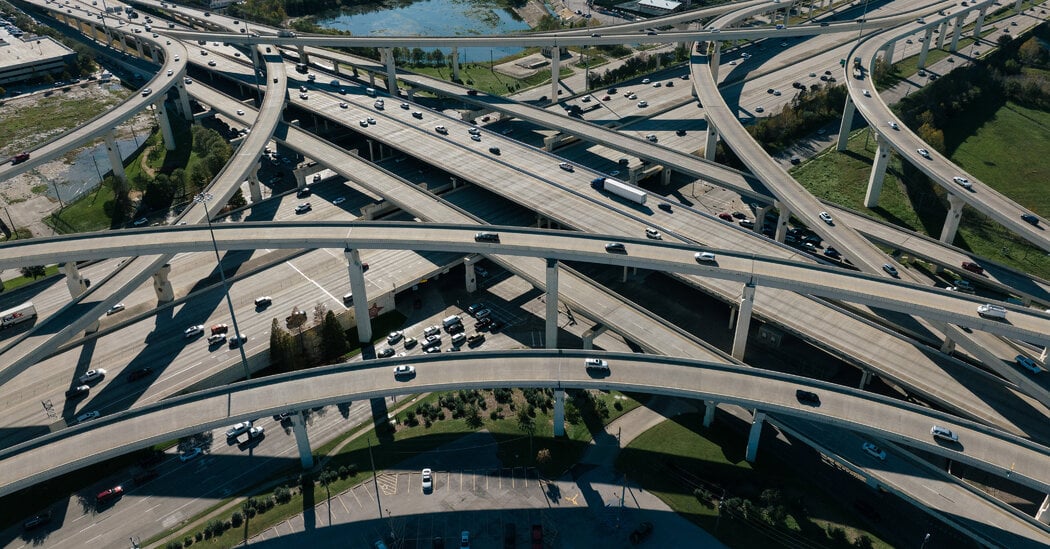For critics of widening projects, the prime example of induced demand is the Katy Freeway in Houston, one of the widest highways in the world with 26 lanes.
Immediately after Katy’s last expansion, in 2008, the project was hailed as a success. But within five years, peak hour travel times on the freeway were longer than before the expansion.
Matt Turner, an economics professor at Brown University and co-author of the 2009 study on congestion, said adding lanes is a fine solution if the goal is to get more cars on the road. But most highway expansion projects, including those in progress in Texas, cite reducing traffic as a primary goal.
“If you keep adding lanes because you want to reduce traffic congestion, you have to be really determined not to learn from history,” Dr. Turner said.



In Tokyo there are 20 million people
The yamanote line at peak hour has a lot of folks, it’s true
But if these 20 million people were in cars? My friend the entire city would be a gigantic 100 lane highway and things would be significantly shittier I guarantee
Trains are the solution and america is insane for ripping up lines to force people to buy cars
100 lanes sounds like a massive exaggeration but is actually undercutting it lol. It’s insane how space and energy inefficient it is to transport that many people in individual cars.
The yamenote line transports 5 million people a day
The Katy Freeway transports 219 000 cars. Let’s say that’s 400 000 people. (pretty generous I think, most cars are just one guy driving to work)
You would need 5 million / 400 000 = 12.5 Katy freeways.
That would be 12.5*26 lanes =325 lanes!
Absolutely true. The amount of land required for not only all the damn traffic, but parking as well. Cars do not make any sense. I can see individual battery assist bikes and scooters but cars in a city are just stupid. And don’t get me started on the colossal idiocy of Musks ‘hyperloop’